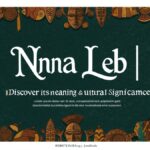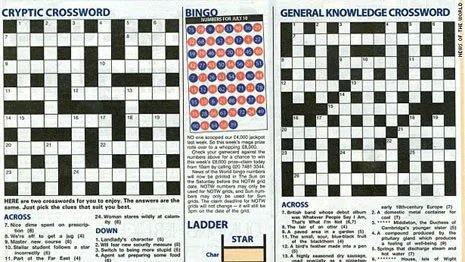When you think of “how bad news travels crosswords” you might picture clues about history, pop culture, or wordplay. But have you ever considered the intriguing intersection of crosswords and the phenomenon of “how bad news travels”? This concept not only reflects a fascinating aspect of human behavior but also offers a unique lens through which to explore the dynamics of information dissemination. In this article, we’ll dive deep into how the concept of bad news traveling can be reflected in crosswords and what this can tell us about the broader implications of negative information in our lives.
The Fascination with Crosswords
Crossword puzzles have captivated minds for over a century. They offer a blend of intellectual challenge, entertainment, and the satisfaction of solving complex problems. These puzzles often serve as a reflection of the times, incorporating current events, cultural trends, and societal norms into their clues and answers. But how does the concept of bad news travel fit into this picture?
Understanding the Concept of “How Bad News Travels”
The phrase “how bad news travels” refers to the way negative information spreads quickly and widely, often with greater speed and intensity than positive news. This phenomenon can be attributed to several psychological and sociological factors, including:
- Negativity Bias: Humans are hardwired to pay more attention to negative information. This survival instinct means that bad news grabs our attention more effectively than good news.
- Emotional Impact: Negative news often evokes stronger emotional reactions, leading people to discuss and share it more actively.
- Social Networks: The interconnected nature of modern communication means that bad news can spread rapidly through social media, news outlets, and word of mouth.
Integrating “How Bad News Travels” into Crossword Puzzles
Crossword puzzles can serve as a clever medium for exploring and reflecting on various themes, including how bad news travels. Here’s how this concept can be woven into crossword puzzles:
1. Clues Reflecting Psychological Insights
Crossword puzzles can incorporate clues that delve into the psychological aspects of how bad news spreads. For instance, a clue might ask for a term describing the human tendency to focus on negative information. The answer could be “NEGATIVITY BIAS,” which is a direct reference to the underlying psychological principles of the phenomenon.
2. Cultural and Historical References
Crosswords can include clues related to historical events or cultural phenomena where bad news had significant impact. For example, clues might reference major historical crises or infamous scandals that were heavily covered in the media. Such clues not only test the solver’s knowledge but also provide insight into how certain types of bad news have shaped public perception and behavior over time.
3. Contemporary Issues
Modern crosswords can also reflect current events where negative information has traveled rapidly. This could include references to recent controversies, scandals, or disasters that have dominated the news cycle. By integrating these elements, crossword creators can make their puzzles more relevant and engaging, while also offering commentary on the nature of information dissemination.
Examples of Crosswords Featuring Bad News Themes
Example 1: Clue about Media Sensation
Clue: “Major media frenzy over a scandal (7, 5)
” Answer: “Media Circus”
This clue reflects how a single piece of bad news can turn into a sensational media event, drawing widespread attention and discussion.
Example 2: Clue about Psychological Impact
Clue: “Tendency to focus on negative information (16)
” Answer: “Negativity Bias”
This clue directly addresses the psychological phenomenon that explains why bad news travels faster than good news.
Example 3: Clue about Historical Event
Clue: “Infamous 20th-century scandal involving a break-in (8, 7)
” Answer: “Watergate Scandal”
This clue references a historical event that garnered significant media coverage and had a lasting impact on public trust in government.
The Role of Crosswords in Understanding Information Dynamics
Crossword puzzles are more than just a pastime; they can serve as a mirror reflecting societal trends and psychological patterns. By incorporating themes related to how bad news travels, crosswords provide an engaging way to explore and understand the broader implications of information dissemination.
Educational Value
Crosswords that feature themes related to negative information can offer educational value by encouraging solvers to think critically about media consumption, psychological biases, and historical events. They can prompt discussions about why certain news stories receive more attention than others and how this affects our perceptions and behaviors.
Engaging the Audience
For crossword enthusiasts, puzzles that include contemporary and relevant themes can enhance engagement and enjoyment. Solvers may appreciate the added dimension of exploring real-world concepts through the lens of a crossword puzzle, making the experience more intellectually stimulating and meaningful.
Conclusion
By reflecting on psychological, cultural, and historical aspects of negative information, crosswords can provide both entertainment and insight into the dynamics of information dissemination. Whether through clues about media sensations, psychological biases, or historical scandals, crosswords can serve as a unique medium for exploring the fascinating ways in which bad news spreads and impacts society. As you solve your next crossword, consider how the puzzle reflects not just wordplay but also the deeper patterns of human behavior and communication.











